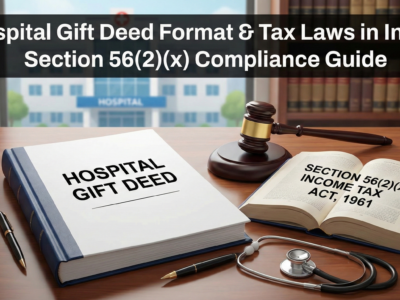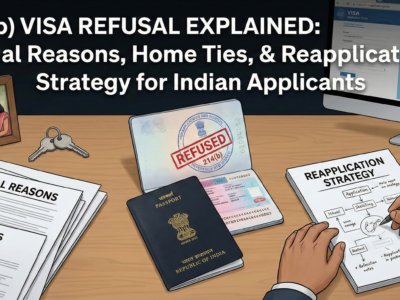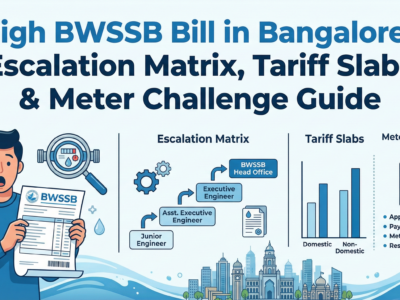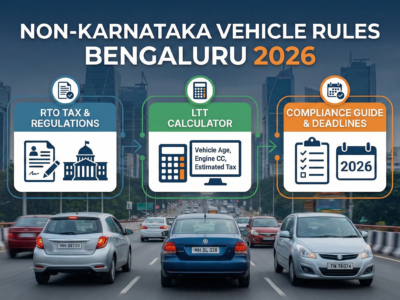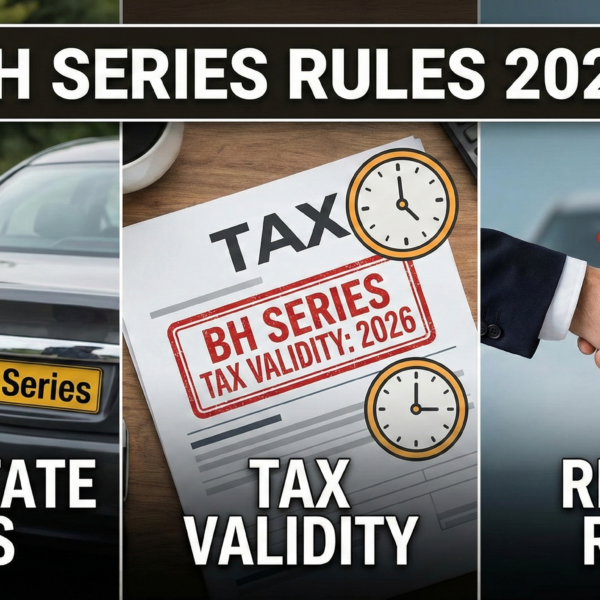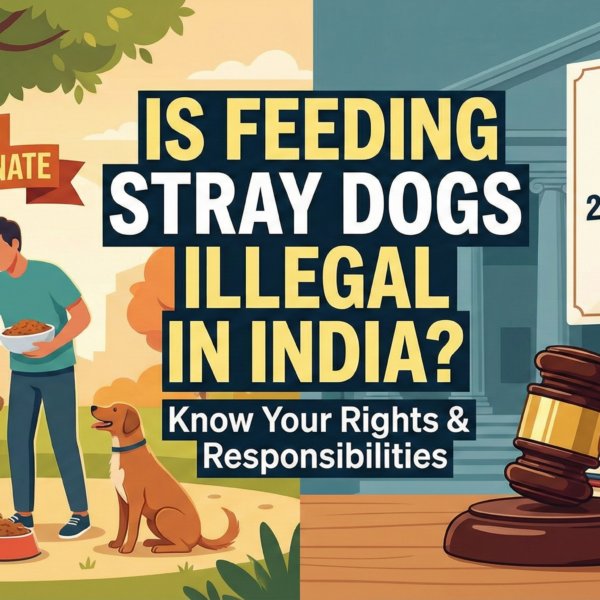In a democracy, your vote is your voice. But what if the very documents you rely on to prove your identity—your Aadhaar, your Voter ID—are suddenly deemed insufficient to secure that right?
This is the critical question at the heart of the recent legal battle over the Election Commission’s (ECI) Special Intensive Revision (SIR) in Bihar, a move that threatened to put nearly three crore citizens in a state of documentary limbo.
Our latest deep dive unpacks this complex constitutional issue. We explore the ECI’s controversial decision, the Supreme Court’s sharp observations, and the landmark precedents that define the relationship between proof of identity and the right to vote. Through interactive charts, infographics, and detailed analysis, we dissect the arguments that could impact millions and shape the future of electoral law in India.
Disclaimer
This webpage presents a fictional legal analysis based on a hypothetical scenario for illustrative and educational purposes only. The content, including names, dates, and events, is not real. It does not constitute legal advice, and no attorney-client relationship is formed. Please consult with a qualified legal professional for advice on any specific legal issue.
The Elector's Proof
A deep dive into the legal clash over Bihar's Special Intensive Revision and its profound implications for citizenship, identity, and the right to vote in India.
Published on July 22, 2025
A Constitutional and Procedural Examination
The legal battle over the Bihar SIR brought into sharp focus the inherent tension between the administrative powers of a constitutional body and the fundamental rights of the citizenry. The ECI anchored its defense in its constitutional mandate under Article 324 (superintendence of elections) and Article 326 (elections based on adult suffrage for citizens). It argued this created a duty to ensure the "purity" of the electoral rolls.
Petitioners countered that the exercise violated Articles 14, 19, and 21, was "ill-timed" just before state elections, and amounted to a "backdoor NRC" designed to disenfranchise millions by placing an unfair documentary burden on them. The Supreme Court, while not staying the process, expressed "serious doubts" and put the ECI's entire methodology under judicial scrutiny.
The Supreme Court's Three Key Questions for the ECI
The Power
Does the ECI possess the constitutional authority for an exercise of this nature and scope?
The Procedure
Is the process adopted for the SIR fair, reasonable, and non-arbitrary?
The Timing
Is initiating the SIR so close to a major state election justifiable?
| Issue | ECI's Position | Petitioners' Position | Supreme Court's Prima Facie Observation |
|---|---|---|---|
| Power to Revise Rolls | Absolute constitutional mandate under Art. 324 & 326. | Must be non-arbitrary and not violate fundamental rights (Art. 14, 21). | Acknowledged as a mandate, but must be lawful. |
| Timing of SIR | Necessary due to 20-year gap since last revision. | "Ill-timed" and hasty, just before state elections. | Expressed "serious doubts" about the timeline. |
| Burden of Proof | Implied duty on claimant to establish eligibility. | Unprecedented reversal placing unfair burden on voters. | Agreed to examine the procedure, including burden of proof. |
| Admissibility of Documents | Aadhaar, EPIC, Ration Cards are not reliable standalone proofs. | Exclusion is arbitrary and designed to disenfranchise. | Suggested ECI should consider including these documents. |
| Jurisdictional Authority | Power to verify citizenship for electoral purposes. | Determination of citizenship is the exclusive domain of the MHA. | Sharply questioned ECI's focus on citizenship, stating it's the "domain of the MHA". |
The Triad of Contention: Aadhaar, EPIC, and Ration Cards
At the heart of the procedural challenge was the ECI's refusal to accept three of the most widely held identity documents in India. This stance created a significant practical hurdle for millions and exposed deep contradictions in the state's approach to identity verification, which the Supreme Court scrutinized for its reasonableness.
Aadhaar Card
ECI's Rejection:
Grounded in Section 9 of the Aadhaar Act, 2016, which states it is not proof of citizenship. Since it can be held by non-citizen residents, it's unsuitable.
Supreme Court's View:
Noted the contradiction that Aadhaar is the basis for other accepted documents (e.g., caste certificates), questioning the logic of its exclusion.
EPIC (Voter ID)
ECI's Rejection:
A "by-product" of the very roll being revised. Accepting it creates circular logic that defeats the purpose of a de-novo (from scratch) revision.
Supreme Court's View:
Suggested its inclusion "in the interest of justice," highlighting the "Catch-22" where the ECI's own card is insufficient proof for the ECI.
Ration Card
ECI's Rejection:
Unreliable due to the "widespread existence of fake ration cards," a view shared by other bodies like the Ministry of External Affairs for passport issuance.
Supreme Court's View:
Suggested its inclusion as the ECI's approved list was explicitly "not exhaustive," pushing for a more practical approach.
Judicial Scrutiny: The Core Contradictions
The Aadhaar Paradox
The Court questioned how Aadhaar can be rejected when other ECI-approved documents (like caste certificates) are often issued using Aadhaar as the foundational proof. This creates a logical paradox.
The EPIC "Catch-22"
The Court highlighted the absurdity of the ECI refusing to accept its own Voter ID card (EPIC). This puts the voter in a "Catch-22": the card issued to prove they are a voter is insufficient to prove they are a voter.
The Onus of Proof: A Fundamental Shift
The most profound legal challenge was the SIR's radical reversal of the burden of proof. This contradicts the foundational Supreme Court precedent set in the 1995 landmark case, Lal Babu Hussein and Others Vs. Electoral Registration Officer and Others. That judgment established that a voter is presumed a citizen if their name is on the roll, and the onus is on the state to prove otherwise through a quasi-judicial inquiry with due process. The ECI's own 2024 Manual on Electoral Rolls directs officers to follow this very case.
Due Process Flow: Lal Babu Hussein vs. Bihar SIR
Established Due Process (Lal Babu Hussein)
Bihar SIR Process
Bihar's Expanding Electorate
The ECI cited significant demographic shifts since the last de-novo revision in 2003 as a key reason for the SIR. The chart below illustrates the growth in Bihar's electorate, highlighting the massive number of voters added post-2003 who were targeted by the re-verification drive.
The Jurisdictional Conundrum: ECI vs. MHA
The SIR ignited a critical debate over institutional roles. The ECI argued it was merely conducting a verification of eligibility for electoral purposes, not a formal determination of citizenship. However, the Supreme Court met this with skepticism, with the bench pointedly asking the ECI's counsel: "Why are you getting into the citizenship issue... It is the domain of the MHA."
This exchange highlights the core conflict: while the Ministry of Home Affairs (MHA) formally determines citizenship under the Citizenship Act, the ECI's verification process, which can lead to disenfranchisement, functions as a de facto determination of civic status. This blurs institutional lines and raises questions of overreach.
Comparative Context: Bihar SIR vs. Assam NRC
| Parameter | Assam NRC | Bihar SIR |
|---|---|---|
| Legal Basis | Specific mandate from Assam Accord & Citizenship Rules, 2003. | ECI's general powers under Art. 324 & RP Act, 1950. |
| Mandating Body | Supreme Court of India. | Election Commission of India. |
| Primary Goal | To create a register of genuine Indian citizens in Assam. | To "purify" the electoral roll for an upcoming election. |
| Legal Recourse | Formal, quasi-judicial process via Foreigners' Tribunals. | Standard electoral process of claims and objections. |
| Characterization | A formal, legislated citizenship determination exercise. | An administrative voter verification exercise (termed a "backdoor NRC" by critics). |
The Underlying Legal Framework
The controversy is a symptom of deeper structural issues, primarily the evolving nature of the Citizenship Act, 1955, and a systemic "documentary deficit" where India lacks a single, universal proof of nationality. The ECI's demand for parental documents stems directly from amendments to the Citizenship Act, which have progressively tightened the rules for citizenship by birth.
Evolution of India's Citizenship by Birth Law (Sec. 3, Citizenship Act)
Jan 1950 - June 1987
Principle of Jus Soli (Right of the Soil)
Every person born in India was a citizen, regardless of parental nationality.
July 1987 - Dec 2004
Jus Soli + Jus Sanguinis (Right of Blood)
Citizen only if born in India AND at least one parent was an Indian citizen at the time of birth. (Parental proof becomes relevant)
Dec 2004 - Present
Stricter Conditions
Citizen only if born in India AND both parents are citizens, OR one is a citizen and the other is not an illegal migrant. (Stricter parental proof required)
The "Documentary Deficit": Proving Citizenship in India
India lacks a single, universal "Citizenship Card." Most citizens must prove their status by piecing together a collection of ancillary documents, creating a systemic vulnerability when mass verification exercises are launched.
Synthesis & Recommendations
The Bihar SIR is a critical stress test of India's democratic infrastructure. To prevent future crises, a multi-pronged approach involving the judiciary, legislature, and the ECI is necessary.
For the Judiciary
Issue new, comprehensive guidelines building on Lal Babu Hussein, tailored for large-scale, modern revision exercises and reaffirming the presumption of eligibility for existing voters.
For the Legislature
Address the "documentary deficit" by legislatively clarifying the evidentiary value of identity documents. Any future NRC-like exercise must have a clear, new legal framework based on lessons learned from Assam.
For the Election Commission
Develop a new Standard Operating Procedure (SOP) for revisions that is rigorously compliant with due process, ensuring the burden of proof remains on the authority, not the citizen.


